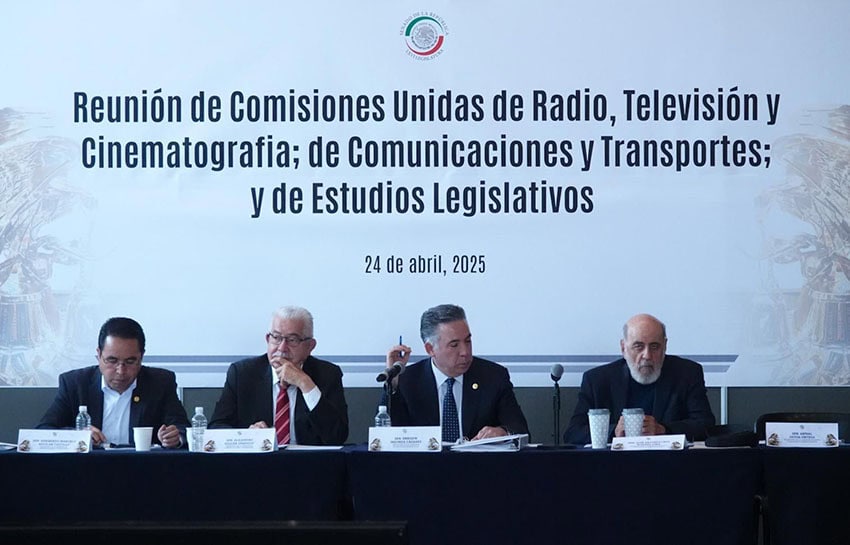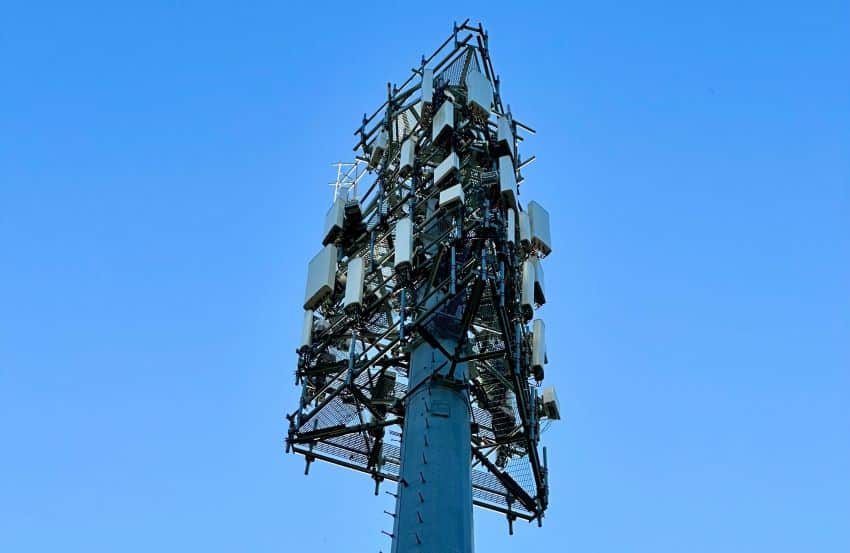A comprehensive telecommunications reform bill that will significantly overhaul the Mexican government’s role in broadcasting and digital media is breezing through the Senate with the support of the ruling party Morena.
The bill was introduced Wednesday and passed through committee in less than 24 hours. If approved on the Senate floor, the legislation would move to the Chamber of Deputies where it is expected to continue on its fast-track path to President Claudia Sheinbaum’s desk.

Boosting interest in the bill is the issue of “foreign propaganda” over Mexican airwaves, such as the recent US government anti-immigration spots. Sheinbaum is on record of wanting to move to ban such ads, which she described as discriminatory and racist.
Critics of the bill warn that the proposal would open the door to government censorship of media.
But the reform entails much more than a reaction to the U.S. anti-immigration ads. Supporters emphasize, for example, that the reform is a serious effort to bridge the nation’s persistent digital divide — 46.8% of the population lives in poverty and many rural areas lack access to digital infrastructure.
Indeed, telecoms reform was necessary before the controversy erupted, after Congress eliminated the telecoms regulator as part of a years-long effort to shutter independent agencies.
What’s in the telecom bill?
Access Partnership, a public policy consultancy focused on technology, provides a thorough outline of the legislation in English.
“The extensive legislative proposal will redefine the country’s digital governance framework for decades to come,” it wrote. “[It] not only signals a structural shift in the institutional regulation of the digital ecosystem, but also embeds social inclusion, digital equity, and public interest as pillars of national policy.”
The proposal prioritizes universal broadband coverage and affordable connectivity as state responsibilities, in line with a constitutional reform on Internet access approved last year.
The reform also effectively eliminates the Federal Telecoms Institute (IFT) and creates a “super agency” by defining the role and function of the new Digital Transformation and Telecoms Agency (ATDT). Under the bill, ATDT is charged with regulating, promoting and supervising the use of public radio spectrum, networks and digital services.
ATDT is given the authority to grant commercial use concessions for wholesale shared telecoms services to public entities, including under a public-private partnership model. But “under no circumstances will this concession permit the provision of services to end users.”
Another major change relates to allowing the awarding of spectrum or lower usage fees in exchange for coverage commitments.

“It is necessary for the state to adopt public policies that incentivize the provision of telecoms services in priority areas and to review spectrum pricing in order to eliminate barriers to technological development,” the bill states.
The opposition cries foul
Opponents have expressed alarm over changes in Articles 109 and 210, which allow for the temporary blocking of a digital platform upon request by a competent authority “for failing to comply with regulatory provisions.”
The legislation does not identify who these competent authorities might be.
President Sheinbaum moved quickly to allay concerns over censorship, even suggesting that the relevant text be modified to clarify that her administration has no intention of censoring content. “That article needs to be clarified to prevent people from saying we want to censor a platform like Facebook or YouTube,” she said. “It needs to be amended or eliminated if it creates confusion.”
Opposition lawmakers claim the legislation promotes censorship as digital content platforms would be prohibited from including any advertising or propaganda financed by a foreign government, except for cultural or touristic information.
Critics have also decried the Senate’s swift passage of the bill which features 283 articles and creates 27 provisional laws.

Kenia López Rabadan, a National Action Party (PAN) congresswoman, called the bill an overreach in a column for El Universal newspaper.
She said the notion of banning propaganda by foreign entities could have been achieved by reforming three constitutional articles. Instead, the new bill would “permit the government to cancel content that it finds uncomfortable.”
Describing the bill as authoritarian, López accuses Sheinbaum and Morena of “using the indignation [prompted by the U.S. ads] to pass a law that could silence those who disagree with the regime. This is an attack on freedom of speech.”
Supporters respond to the criticism by claiming the conservative opposition has colluded with the telecoms industry to become “de facto powers” able to escape democratic control. In an editorial, La Jornada newspaper pointed to the U.S. ads as proof of this lack of ethics.
With reports from CNN en Español, El Universal, BNamericas and El Financiero
